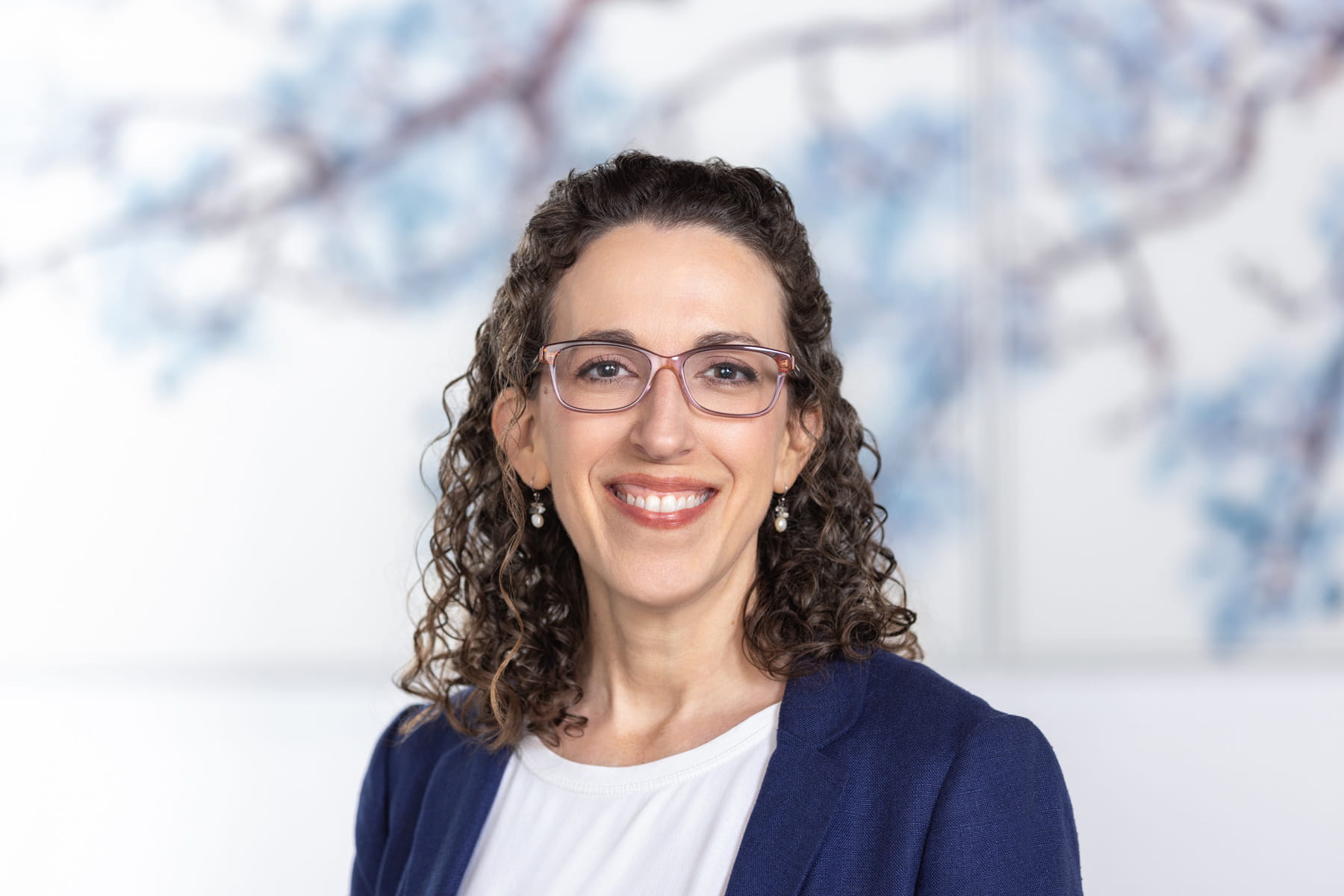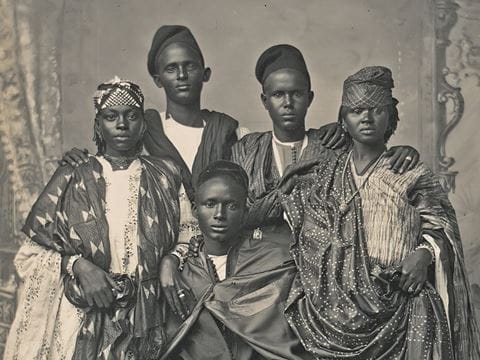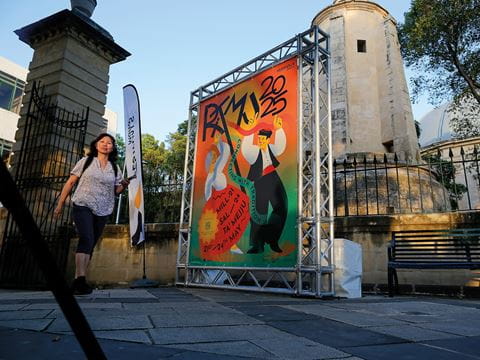
Conversation With Arabic Proverbs Book Editor Brian Powell
1,001 Arabic Proverbs With English Translation is a comprehensive collection of wise sayings extending over 14 centuries, from classical Arabic to nearly a dozen major modern dialects.
“If someone knows the words of a people, his day is easier.” So goes an adage from Hassaniya Arabic, one of the Maghrebi dialects, on the importance of learning languages.
Brian Powell agrees. As a partner in Washington, D.C.-based translation service Industry Arabic, he translates reports, research materials, technical and legal documents for businesses and NGOs from English to Arabic and vice versa. The company’s recently published book detours into a more literary realm; as its editor, Powell is now also an ambassador of the original sound bite: the proverb.
1,001 Arabic Proverbs With English Translation is a comprehensive collection of wise sayings extending over 14 centuries, from classical Arabic to nearly a dozen major modern dialects. They are grouped thematically: Speech and Language, Wisdom and Advice, Beauty and Appearance, Love, Marriage, Men and Women, Family and Friendship and more. Powell presents the proverbs in Arabic, followed by the literal English translation and then context, if needed. The compilation is for both the student of Arabic and the curious reader who doesn’t speak a word of it.
It is a natural undertaking for Powell, who long has embraced language as a conduit to culture. After a year at The American University in Cairo, the Philadelphia native stayed in Egypt to continue perfecting his Arabic. His Egyptian friends helped him find work as a translator, a career that he’s practiced for a dozen-plus years.
These days the polyglot—Powell also speaks fluent French, Persian (Farsi), Spanish and Portuguese—works from his base in São Paolo, Brazil, where, in addition to his everyday translation work, he takes on literary projects. Powell is researching different countries’ versions of the Arab folk epic Bani Hilal. He also is translating a novel about Al-Qaswa, the camel that accompanied the Prophet Muhammad on many journeys, for Saudi Arabia’s premier cultural center, Ithra.
AramcoWorld spoke with Powell about the Industry Arabic book and the art and challenge of translation.

1,001 Arabic Proverbs With English Translation Brian Powell, ed. Industry Arabic, 2024.
This book is a departure from the type of material you normally translate. What made you want to tackle Arabic proverbs?
The book actually started as an article on the [Industry Arabic] website. In our translation work, proverbs do come up from time to time, and there’s always a question of how to translate proverbs because, OK, you can try to find an equivalent proverb in English, but then you lose some of the feel of the original. But if you translate the original proverb, then it might not make sense. In the book we tried to include some cultural notes about how the proverb actually works. It’s definitely something that involves a bit of research, talking to native speakers, seeing what they think—and sometimes there’s not even agreement about what it means among the native speakers of the different dialects!
Are there in fact 1,001 proverbs in the book? Why does the title play on The Thousand and One Nights?
I think there are actually 1,005 [laughs]. 1,001 really symbolizes having a multitude. In the context of The Thousand and One Nights, the story collection, it doesn’t mean 1,001 stories literally. It’s just an expression for an endless number or large number, so we used our title in the same spirit.
Why are proverbs important?
Proverbs are a repository of the collective experiences of an entire culture—in terms of received wisdom, certainly, but also in terms of their material existence, the items they use in everyday life or their natural surroundings. All of this becomes transformed into a verbal expression that captures so much of the culture in a very condensed form that has its own sort of brilliance. For an expression to become a proverb, it has to be very incisive in terms of the idea that it expresses and also the way it expresses that idea. It has to be very witty or clever or colorful.
Why is it important to make Arabic idioms accessible to English speakers?
Looking from the outside, you often see the Middle East or the Arab world as a monolith. The thing is, when you actually go and live in those countries, you realize how much diversity there is; each country really has its own feel and its own culture and even its own foods and clothing. You see this reflected in the proverbs.
In putting this book together, was there a particular proverb that surprised you or that you found especially charming?
There’s a Sudanese proverb that says, “The branches of the la’ot shrub only come together when it dies.” It refers to a situation where you have a family or group of people, and they only meet when somebody dies, when you’re going to a funeral, for example, because you’re not really in touch anymore. We can recognize this in the US, but we don’t really have an expression for it in English. So here you have an Arabic proverb that captures a common phenomenon, and it’s doing it with very local imagery. It’s referring specifically to a type of plant in Sudan [with spread-out branches]. It just shows how proverbs can express universal experiences through the lens of a particular cultural background or geography.
Is there validity to the idea that the very act of translation mispresents or dilutes a cultural identity?
There’s the Italian expression Tradutorre, traditore: “The translator is a traitor.” In this proverbs book, I was able to minimize that because the translation includes commentary, so that I’m telling the reader how you should be understanding this. This can be a big issue when you’re translating a novel or poetry, when one of the priorities is to make something readable as literature in the target language. A lot of times that can come at the expense of the linguistic or cultural nuance of the original text. It’s always a question of finding a balance. Translation involves these hard choices every day.
Do you see your role as a cultural mediator?
For some projects, yes. Sometimes a translator is almost like a lawyer, in the sense that we represent our clients and their interests without regard to our own personal feelings on things. We try to be objective and make sure that they express what they want to express in an accurate way. In [a] more cultural translation, like this proverbs book, I would say we are like a cultural mediator.
This interview has been edited for length and clarity.
About the Author

Matthew Bromley
Artist, illustrator and publication designer Matthew Bromley runs Graphic Engine Design in Austin, Texas, and he is the graphic designer of AramcoWorld. Contact him at mbromley@graphicengine.net, @robot.matthew.bromley on Instagram.
Suzanne Garofalo
Suzanne Garofalo is a copy editor and writer at AramcoWorld. She holds a degree in journalism from The University of Texas at Austin and has contributed to a variety of publications for more than two decades.
You may also be interested in...

Sisters Behind HUR Jewelry Aim To Honor Pakistani Traditions
Arts
Culture
What began with a handmade pair of earrings exchanged between sisters in 2017 has evolved into a jewelry brand with pieces worn in more than 50 countries.
Author Giulia Paoletti Traces History of Senegal’s Photography
Art historian Giulia Paoletti discusses her book Portrait and Place, exploring the rich but largely undiscovered history of photography and portraiture in Senegal.
Għana Folk Music Helping to Keep Maltese Language Alive
Culture
Ghana, Malta's poetic folk music tradition, is in harmony with a reinvigorated sense of national pride—and is helping to protect the Maltese language.